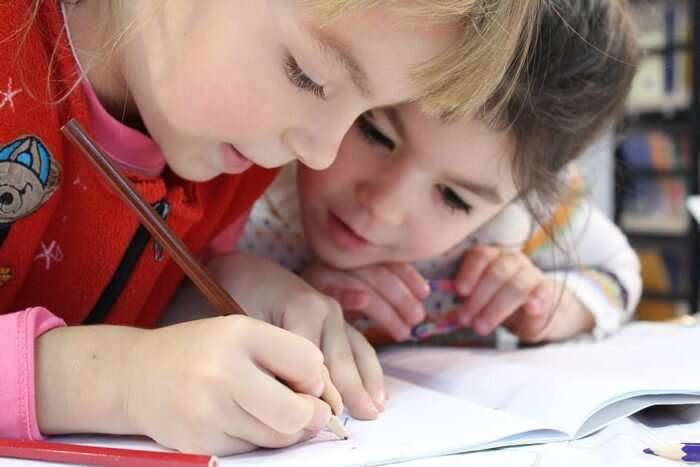Ease up on e-learning expectations for kids

You may have seen the Israeli mom's video rant about the intensity of the workload of her four children during online learning: "If we don't die of Corona, we'll die of distance learning!"
The beleaguered woman has a point worth hearing as Ontario parents scramble to make sure their kids make the most of virtual learning that rolls out across the province this week, says a leading expert on the science of learning.
"It is useful to engage children with some school now—but be gentle on yourself and, by extension, be gentle on them to reduce the stress load on everyone," said Daniel Ansari, Canada Research Chair in Developmental Cognitive Neuroscience at Western's Brain & Mind Institute and head of the Numerical Cognition Laboratory.
Ansari specializes in the science of learning. He also gets anxious about the possibility that children will fall behind academically. When that happens, he reminds himself to take a deep breath. "We're all in this together and we'll all come out of this together," he said.
Parents shouldn't think this period of schooling at home is a time to replicate what kids would otherwise learn in the classroom from a trained educator. "This is a moment when we realize how skilled and how important teachers are. We can't just slip into that role."
Beyond the fact they're not professional teachers, there are other reasons many parents aren't available to guide their children through the school day, whether it's because of work schedules, unemployment, illness or other commitments.
Despite school boards' efforts to provide appropriate technology to those who don't have it, there's already unequal access to computers, software and Internet availability and speed. "It would be terrible if we came out of this moment and we've basically exacerbated the social and economic inequities.
"It's easy to say, "Keep up your schoolwork," but for many families that's just not possible. For me, the most important thing is to ensure children have the resources they need, and any schooling beyond that is just icing on the cake."
Yes, there will be knowledge gaps in core subjects. But parents shouldn't be so worried about their children 'underachieving." They forget the whole world is facing a similar issue.
Children are not simply missing academic time. They are also being denied important social interaction and language development earned among peers. "Those relationships will need time and space to catch up."
His advice for learning during this time:
- Maintain a daily structure that maximizes variety and minimizes stress. Children under stress don't learn well;
- Have children do schoolwork in chunks. Switching subjects often works better than sticking to one subject for hours at one stretch;
- Eating meals together (not in front of screens) and debriefing the day helps work on language and problem-solving skills;
- Children should be self-testing often, quizzing themselves on material instead of highlighting and summarizing text;
- Use available resources and learning tips from your local school board and Ministry of Education. Check out information from the science of learning and the Learning Disabilities Association of London Region; and
- Help the kids learn tasks that are essential but won't be on any test: laundry, doing dishes, cleaning their room, make a meal. Working with and beside children to develop a variety of skills—something called guided participation—is a key way many societies without textbooks teach children.
Finally, he said, understand that 'achievement' has different definitions for different people. Success for one child (or parent) might mean completing two hours of schoolwork a day, but for another child, it could mean making the bed two days in a row.
"We need to accept this is an extraordinary moment in time. Everyone is reacting in different ways," Ansari said. "Be gentle, seek out opportunities for more informal learning and get outside, because we can't ignore the physical side of learning."
Provided by University of Western Ontario





















